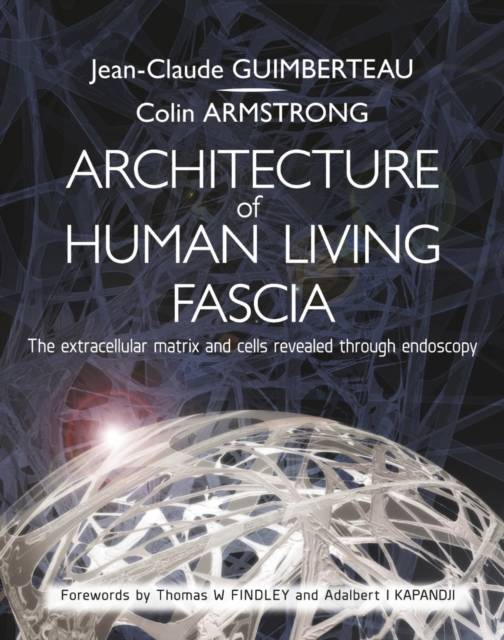
- Retrait gratuit dans votre magasin Club
- 7.000.000 titres dans notre catalogue
- Payer en toute sécurité
- Toujours un magasin près de chez vous
- Retrait gratuit dans votre magasin Club
- 7.000.000 titres dans notre catalogue
- Payer en toute sécurité
- Toujours un magasin près de chez vous
Architecture of Human Living Fascia
The Extracellular Matrix and Cells Revealed Through Endoscopy
Jean Claude Guimberteau, Colin ArmstrongDescription
This unique book illustrates the structure of the fascia in the living human being. Dr Guimberteau's photographs provide a detailed account of fascial architecture. He is the first person to publish video "movies" showing the structure of the fascia and how the fascia responds to it. The accompanying text explains what the photographs mean, clarifies the importance of the fascia, and sets out the implications of these findings for everyday therapeutic practice.
This beautifully illustrated book provides an introduction to Dr Guimberteau's groundbreaking work. Based on what can be seen he has developed his own concept of the multifibrillar structural organisation of the body, wherein the "microvacuole" is the basic functional unit. His films confirm the continuity of fibres throughout the body thereby seeming to confirm the tensegrity theory, which provides the basis of many manual therapy and bodywork teachings. His work ties in with that of Donald Ingber on tensegrity within the cytoskeleton, and adds to the evidence linking the cytoskeleton to the extracellular matrix as described by James Oschman. The book provides, for the first time, an explanatory introduction and explanation of these theories. This material will be highly valued by osteopaths, massage therapists, chiropractors and others as it provides part of the scientific underpinning of their techniques, as well as an explanation of what is happening when they use those techniques to treat their clients.
So Guimberteau's material confirms what manual therapists already believed but didn't fully understand. He has provided an explanation of how fascial layers slide over each other and how adjacent structures can move independently in different directions and at different speeds while maintaining the stability of the surrounding tissues.
Spécifications
Parties prenantes
- Auteur(s) :
- Editeur:
Contenu
- Nombre de pages :
- 224
- Langue:
- Anglais
Caractéristiques
- EAN:
- 9781805012573
- Date de parution :
- 21-02-24
- Format:
- Livre broché
- Format numérique:
- Trade paperback (VS)
- Dimensions :
- 219 mm x 276 mm
- Poids :
- 653 g







